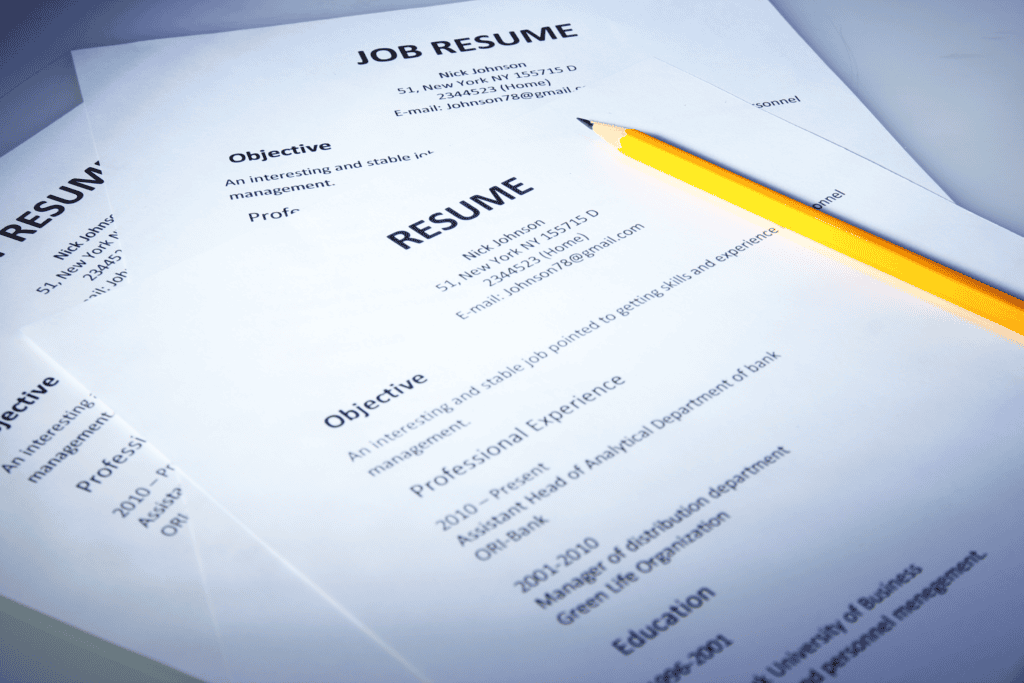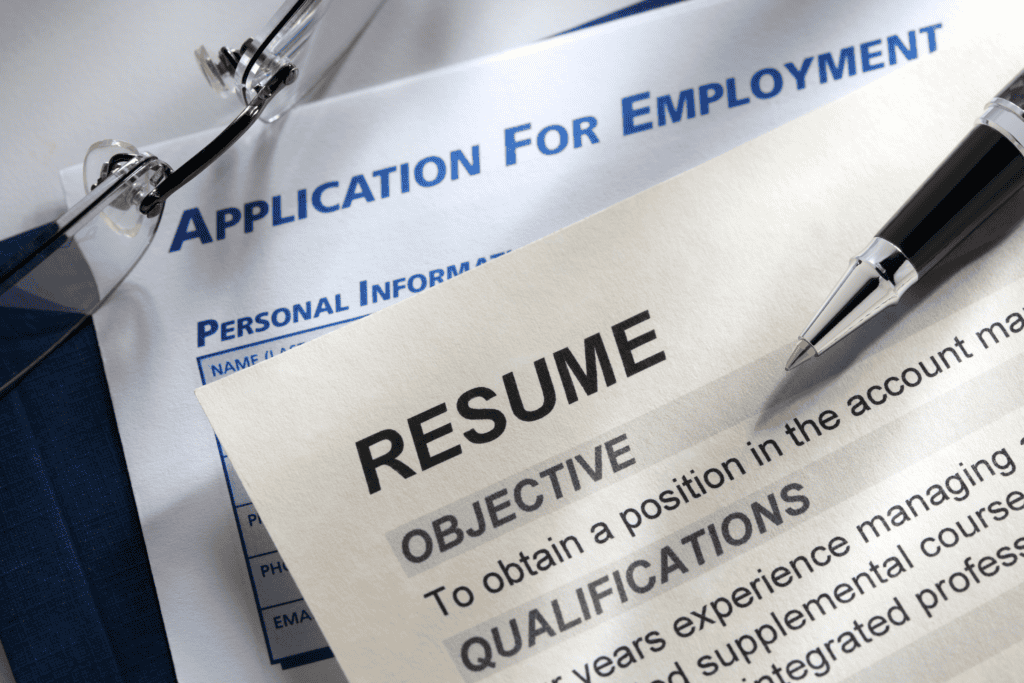This post may contain paid and/or affiliate links. I make a small commission at no extra cost to you. Please see our Privacy Policy.
Highlighting Transferable Remote Skills
Welcome back! In our previous post, we laid the groundwork for crafting a remote-friendly resume.
Now, we turn our focus to one of the most crucial aspects of your resume: transferable skills. These skills are your golden ticket to proving that you’re equipped for the remote work revolution. Let’s dive into identifying and showcasing these skills to make your resume shine in the eyes of remote employers.

Identifying Transferable Remote Skills:
Transferable skills are the abilities you’ve acquired throughout your career that are valuable across various jobs and industries. In the realm of remote work, these skills are especially important, as they demonstrate your capability to adapt to virtual environments. For remote positions, employers often look for skills like effective communication, adaptability, and problem-solving to start.
Here’s a list of transferable skills that are particularly valuable in remote work environments:
- Communication: The ability to clearly convey information and ideas through various platforms such as email, video conferencing, and messaging apps.
- Time Management: Efficiently managing your time and prioritizing tasks to meet deadlines without direct supervision.
- Self-motivation: The drive to initiate projects, find solutions to problems, and stay productive without external motivation.
- Adaptability: Being able to adjust to new tools, workflows, or changes in the work environment quickly and effectively.
- Problem-Solving: The capacity to identify issues and implement effective solutions, especially in situations where in-person collaboration is not possible.
- Technical Proficiency: Understanding and effectively using digital tools and technologies required for remote work, such as project management software and virtual collaboration tools.
- Organization: Keeping work and projects orderly, which is essential when managing multiple tasks and deadlines remotely.
- Independence: The ability to work autonomously, make decisions, and carry out tasks without constant guidance.
- Cultural Awareness: Being sensitive and open to working with team members from diverse backgrounds and cultures, often encountered in global remote teams.
- Emotional Intelligence: The capacity to be aware of, control, and express one’s emotions appropriately, as well as handle interpersonal relationships judiciously and empathetically.
- Leadership: The skill to lead and manage teams remotely, including motivating team members, coordinating tasks, and fostering a positive virtual work environment.
- Attention to Detail: The ability to focus on the finer points of tasks and projects, ensuring high-quality outcomes in a remote setting.
- Proactivity: Taking initiative to go beyond the assigned tasks, seeking out ways to improve processes and contribute to team success.
- Collaboration: Working well with others in a virtual setting, including sharing information, supporting team goals, and contributing to a positive team dynamic.
- Resilience: The capacity to cope with setbacks and continue to perform effectively in a remote work context.
These skills can be developed and honed over time and are essential for success in a variety of remote work positions. Highlighting these skills on your resume can demonstrate to potential employers that you are well-equipped to handle the unique challenges of remote work.
These skills show that you can handle the unique challenges of remote work, such as navigating time zone differences, collaborating with virtual teams, and managing work-life balance. For a more comprehensive list of skills that are highly valued in remote work environments, you can see them here Work Well Remote.
Articulating Transferable Skills on Your Resume:
Skill-Based Sections:
On your resume, consider creating dedicated sections to draw attention to your transferable skills. This could be a section titled “Remote Skills” or “Virtual Collaboration,” where you list skills relevant to remote work. This not only highlights your abilities but also shows that you understand the demands of a remote role.
For expert advice on crafting these sections, check out resources like The Muse, which offer guidance on how to show your potential and expertise through your resume.

Using Action Words and Quantifying Achievements:
When describing your transferable skills, employ powerful action verbs that bring your experiences to life. Words like “orchestrated,” “implemented,” or “enhanced” can make your achievements stand out. Moreover, whenever possible, quantify your accomplishments.
Did you reduce email response time by 30%? Or increase team productivity through a new virtual workflow? These specifics give weight to your skills.
Examples of using action works and quantifying achievements:
- Communication:
- “Revitalized internal communication by implementing a weekly video conference, resulting in a 40% increase in team engagement and collaboration.”
- Time Management:
- “Restructured personal workflow with time-tracking software, enhancing productivity by 25% and consistently meeting project deadlines.”
- Self-Motivation:
- “Independently pursued advanced training in remote work best practices, leading to a 15% improvement in personal task efficiency.”
- Adaptability:
- “Seamlessly transitioned to a new project management platform within a week, maintaining 100% project continuity during the switch.”
- Problem-Solving:
- “Devised and executed a strategy to troubleshoot and resolve a recurring software issue, reducing downtime by 30%.”
- Technical Proficiency:
- “Mastered five different remote collaboration tools, contributing to a 20% increase in team productivity.”
- Organization:
- “Developed a digital filing system that improved document retrieval times by 50% for the entire remote team.”
- Independence:
- “Spearheaded a client acquisition project, securing 10 new clients in a quarter without direct oversight.”
- Cultural Awareness:
- “Coordinated a multicultural marketing campaign, resulting in a 35% growth in the international customer base.”
- Emotional Intelligence:
- “Mediated a team conflict via virtual mediation sessions, restoring harmony and preventing a potential 15% loss in team efficiency.”
- Leadership:
- “Directed a remote team of 15, leading to the successful completion of a complex project two weeks ahead of schedule.”
- Attention to Detail:
- “Conducted a comprehensive audit of company-wide reports, enhancing accuracy by 98%.”
- Proactivity:
- “Initiated a voluntary remote workgroup to optimize cross-department communication, cutting cross-talk by 25%.”
- Collaboration:
- “Facilitated a virtual brainstorming session that generated three innovative product ideas, one of which increased market share by 10%.”
For other examples of how to use action words and quantify achievements, FlexJobs is a great resource to explore.

Strategies for Demonstrating Proficiency:
To effectively demonstrate your proficiency in remote collaboration and communication, you can include specific examples of your experiences. For instance, you might describe a time when you led a virtual team across different countries, highlighting how you navigated the challenges of coordinating across time zones. Or, you might detail how you’ve used digital tools to maintain clear communication and keep projects on track.
In your “Remote Skills” section, you could write something like:
- “Facilitated a cross-continental team of 12, implementing a synchronized workflow on Asana, improving project delivery time by 20%.”
- “Championed the adoption of Slack across departments, leading to a 35% decrease in internal email communications and faster decision-making.”
For self-motivation, you can showcase instances where you took the initiative to learn a new tool or process that benefited your remote work, or how you independently managed a project from conception to completion. Remember, the aim is to paint a picture of your work ethic and ability to operate effectively without direct supervision.
Conclusion
Throughout this post, we’ve explored how to identify and articulate the transferable skills that make you a standout candidate for remote work. By creating skill-based sections, using action words, quantifying achievements, and providing concrete examples, you can craft a resume that truly captures your remote work prowess.
As you prepare to update your resume, take time to reflect on your experiences and how they translate into the remote work environment. Identify your strongest transferable skills and think about how you can present them in a compelling way. With these strategies in hand, you’re ready to highlight your skills effectively and take the next step in your remote career journey.
For more tips and guidance on building a remote-friendly resume, continue to follow our free remote resume writing course online at Work Well Remote. Together, we’ll ensure your resume not only meets the mark but stands out in the remote job market.

Leave a Reply